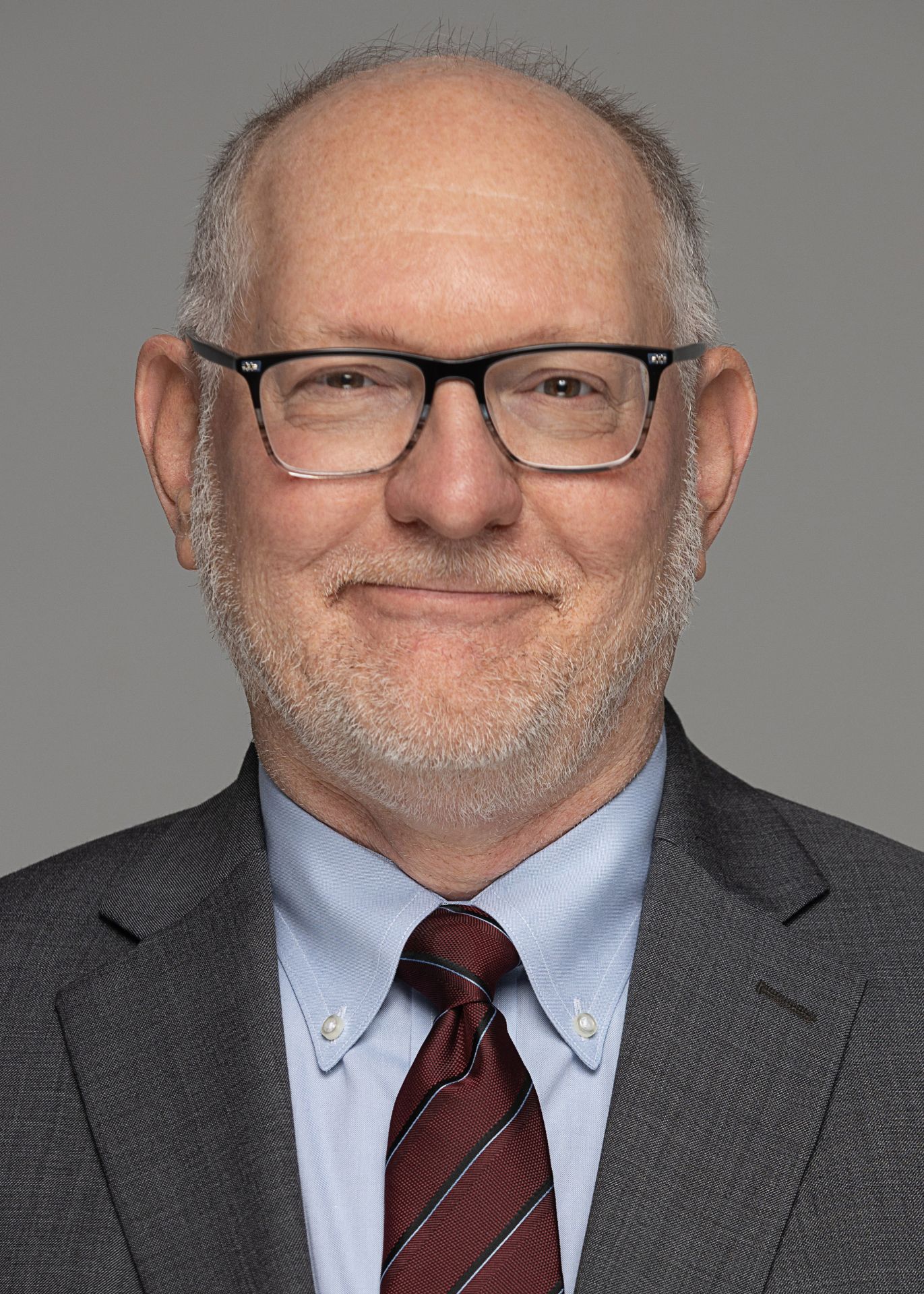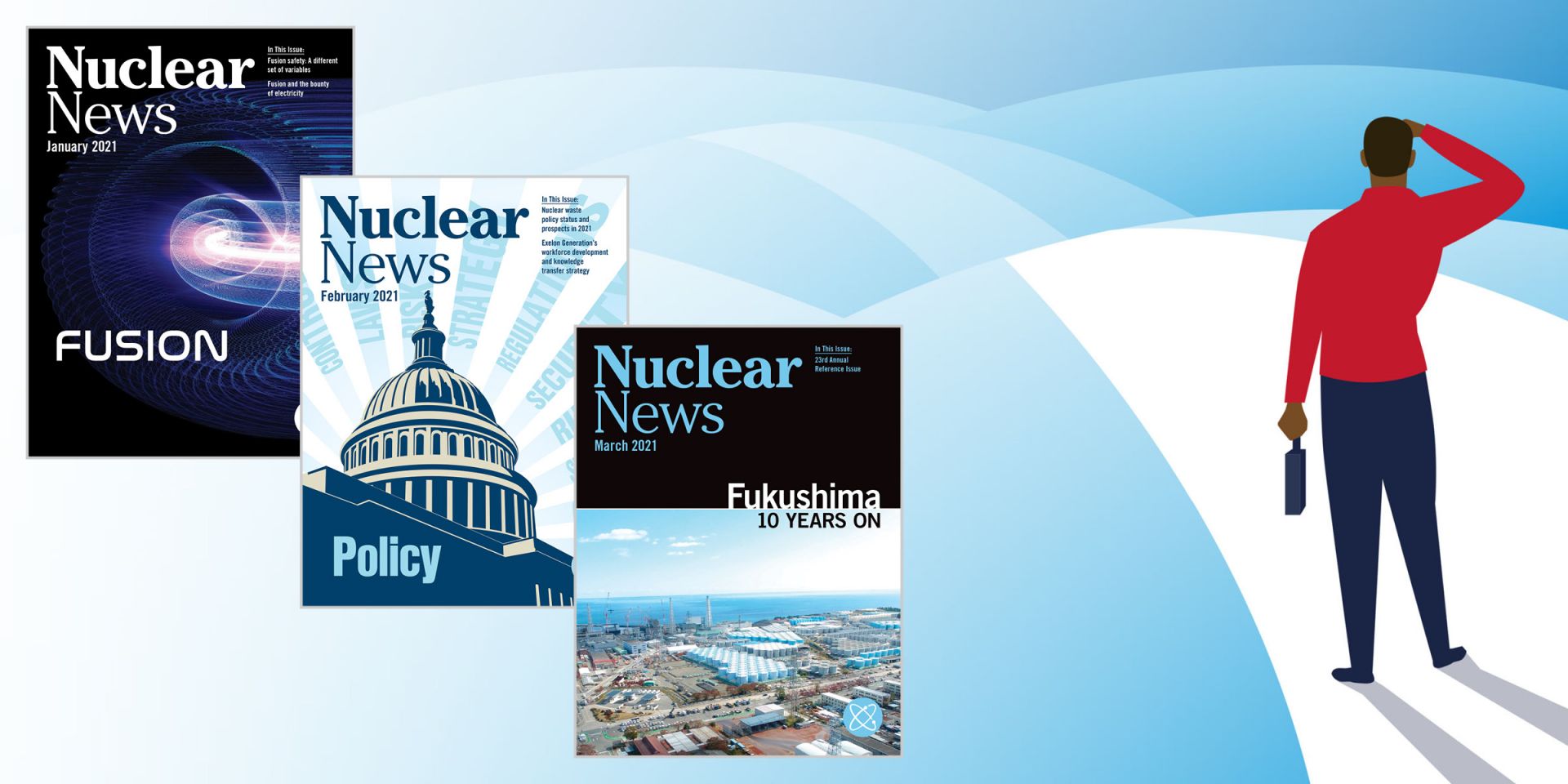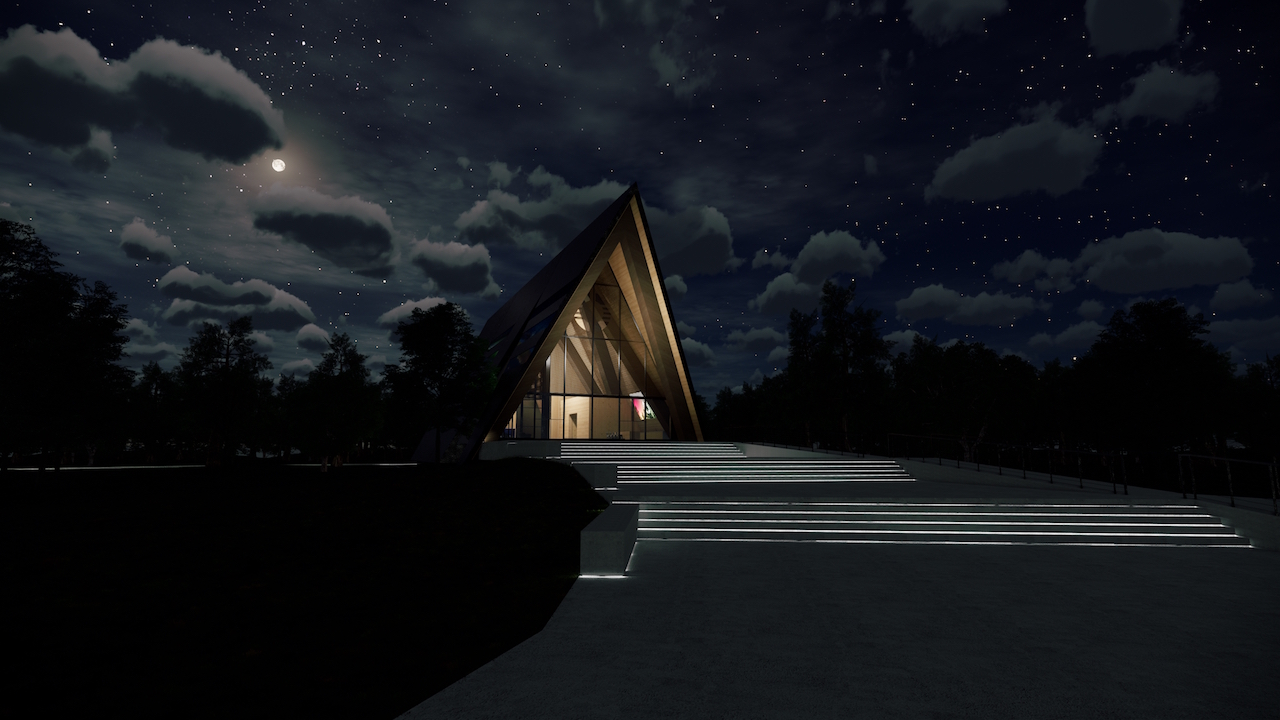Xiaoluo Wang (right), a fellow under the IAEA Marie Sklodowska-Curie Fellowship Program, graduated last year with a master’s degree in nuclear engineering and is getting work experience at the IAEA's Division of Nuclear Fuel Cycle and Waste Technology. (Photo: A. Tarhi/IAEA)
The International Atomic Energy Agency has selected more than 110 female students from around the world to receive scholarships under its Marie Sklodowska-Curie Fellowship Program.
Launched in 2020 by the IAEA's director general, Rafael Mariano Grossi, the program offers young women an opportunity to pursue studies toward a master’s in the nuclear field by providing financial support and practical experience. Its aim is to help close the gender gap in the traditionally male-dominated nuclear sector, where women make up less than a quarter of the workforce globally, according to data from the World Nuclear Association.
Kurt Terrani observing a chemical vapor infiltration furnace at ORNL during densification of additively manufactured nuclear-grade silicon carbide. (Photo: Carlos Jones/ORNL/DOE)
Ultra Safe Nuclear Corporation (USNC), a Seattle-based reactor developer, has licensed an additive manufacturing technique developed at the Department of Energy’s Oak Ridge National Laboratory to print refractory materials into structural and core components for the company’s microreactor designs.
[CLICK TO VIEW FULL IMAGE] The diagram at left illustrates the experimental setup and the resulting zirconium oxide layer of varying thickness. The second diagram shows the circular zirconium alloy sample that is affected by the band of nickel alloy and radiation. Finally, the electron image at right shows a band of oxidation on the zirconium alloy sample. (Images: Peng Wang, Michigan Ion Beam Laboratory)
A longstanding issue in boiling water reactors—shadow corrosion on zirconium alloy fuel rods and fuel channels—has been reproduced in the Michigan Ion Beam Laboratory as part of an effort to understand and prevent the phenomenon. Research led by Peng Wang, a University of Michigan assistant research scientist in nuclear engineering and radiological sciences, was published in the January 2022 issue of the Journal of Nuclear Materials and described in a recent university news article.
The Flamanville nuclear power plant in France.
France’s Flamanville-3 project, plagued by schedule setbacks and cost overruns for well over a decade (construction of the unit commenced in December 2007), will be delayed a bit longer and cost a bit more.
Électricité de France announced yesterday that fuel loading at the 1,600-MWe EPR has been pushed back from the end of this year to the second quarter of 2023. The delay increases the project’s cost at completion from €12.4 billion (about $14.2 billion) to €12.7 billion (about $14.5 billion), more than four times the initial estimate of €3.3 billion, according to EDF.
Oak Ridge before-and-after views: At left is the Oak Ridge Gaseous Diffusion Plant when it was closed in the late 1980s, and at right is a view of the site today, known as the East Tennessee Technology Park. (Photo: DOE)
Energy secretary Jennifer Granholm honored a Department of Energy Office of Environmental Management (EM) team from Oak Ridge with the Secretary of Energy’s Achievement Award during a virtual ceremony yesterday for successfully removing a former uranium enrichment complex. The project cleared 13 million square feet of deteriorated, contaminated structures from the site.
The Temelin nuclear power plant in Czech Republic.
In a wide-ranging “program statement” laying out its policy priorities, the Czech Republic’s new, center-right government has endorsed nuclear energy and renewables and called for power generation from coal to be phased out by 2033.
The final version of the statement was released on January 7 by the five-party coalition government, sworn into office last month and led by Prime Minister Petr Fiala, head of the Civic Democratic Party.
An artist's rendition of Oklo’s Aurora powerhouse. (Image: Gensler)
The Nuclear Regulatory Commission has denied “without prejudice” Oklo Power’s application to build and operate its Aurora microreactor in Idaho, the agency announced yesterday. The denial, according to the NRC, is due to the California-based firm’s failure to provide sufficient information on several crucial topics regarding the Aurora design.
















